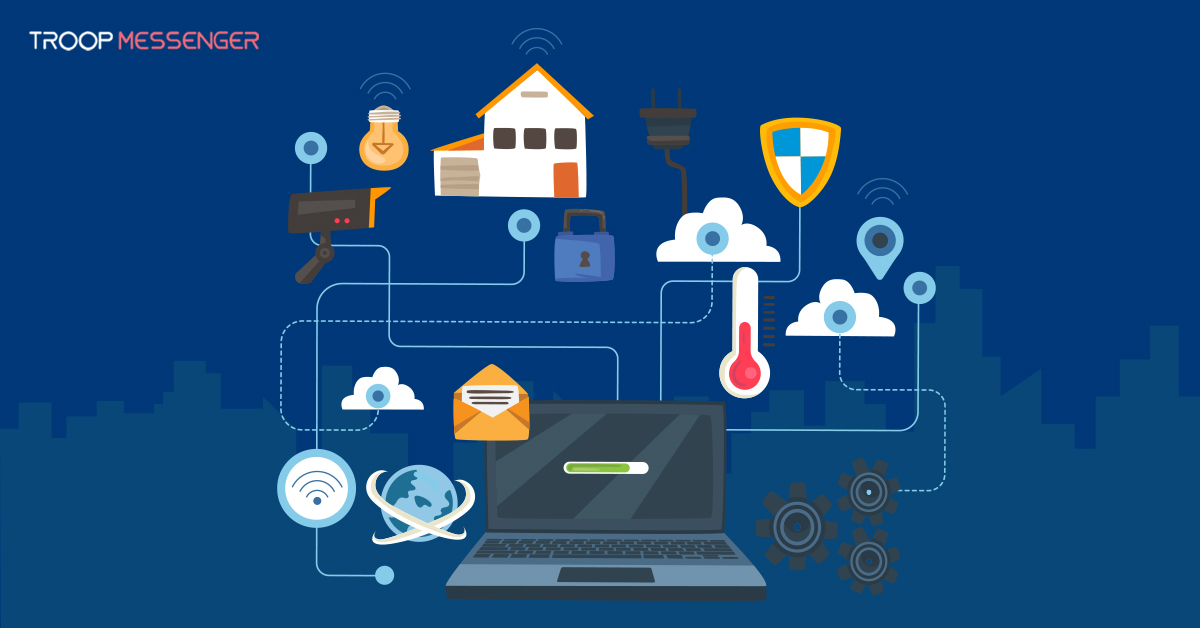Connect with us

How Residential Proxies Tools Revolutionize Online Technology
IP masking plays a crucial role in modern technology. It acts as an intermediary between a user's device and the Internet, allowing users to browse the web anonymously and securely.
This article aims to provide a comprehensive overview of residential IP proxies and their importance in various tech sectors. We will explore their functionality, benefits, and applications across different industries.
Residential proxies are IP addresses that Internet Service Providers (ISPs) assign to homeowners.
They provide high legitimacy and security because they mimic actual user behavior. This makes them highly effective for tasks requiring anonymity and security.
Unlike data center proxies, IP masking is more complicated to detect and block. This guarantees a smooth and continuous surfing experience.
This article aims to educate readers about residential IP proxies. We will cover their basic functionality and compare them with other proxies.
Additionally, we will discuss their applications in various tech sectors, including e-commerce, digital marketing, and cybersecurity.
By the end of this article, readers will have a thorough understanding of residential proxies and their significance in the digital world.
Understanding Residential Proxies Tools
Definition and Basic Functionality
Residential proxies are IP addresses Internet Service Providers (ISPs) assign to homeowners. They act as intermediaries between a user's device and the internet.
These proxies mask the user's original IP address, allowing them to browse the web anonymously. Proxy servers offer high legitimacy and security because they mimic real user behavior.
Comparison with Other Types of Proxies
Residential proxies such as anyIP differ significantly from data center proxies. Datacenter proxies are not affiliated with ISPs, come from data centers, and are easier to detect.
IP masking is more complicated to block since it looks like actual users. This makes it more effective for tasks requiring high anonymity and security.
How Residential Proxies Work
Real residential IP addresses are used by dedicated residential proxies to route internet traffic. A user requests through a residential IP address, masking the user's original IP.
This process makes the request appear to be coming from a legitimate residential user. This helps bypass geo-restrictions and reduces the chances of getting blocked.
Key Benefits of Residential Proxies in Technology
Enhanced Security and Anonymity
Residential proxies provide enhanced security by hiding the user's actual IP address. This makes it difficult for websites to track and block the user.
The anonymity offered by IP masking protects users from online threats and ensures privacy.
Improved Access to Geo-Restricted Content
With IP masking, users can access content restricted to specific geographic locations. Users can bypass geo-blocks and access region-specific content using an IP address from the desired location.
This is especially helpful for websites that have location-based restrictions and streaming services.
Better Performance in Web Scraping and Data Mining
Dedicated proxies are essential for web scraping and data mining. They allow users to scrape websites without being blocked.
Since residential IPs look like actual users, they can gather data from websites more effectively. This improves the efficiency of data collection and reduces the risk of detection.
Advantages of Data Center Proxies
High-speed proxies offer several advantages over data center proxies. They are harder to detect and block, making them more reliable. They also provide higher anonymity and security.
Websites often flag and block data center proxies, while Web scraping proxies do not. This makes IP masking a better choice for tasks requiring high reliability.
Applications of Residential Proxies in Various Tech Sectors
E-commerce: Price Monitoring and Competitive Analysis
In e-commerce, IP masking is used for price monitoring and competitive analysis. They help businesses track prices on competitor websites without being detected.
This enables businesses to stay competitive by adjusting their prices based on market trends.
Digital Marketing: Ad Verification and Campaign Management
Residential proxies are crucial for ad verification and campaign management. They allow marketers to verify that their ads are displayed correctly across different regions.
Marketers can use residential IPs to check for ad fraud and ensure their campaigns run smoothly. This helps optimize ad performance and achieve better results.
Cybersecurity: Preventing Fraud and Ensuring Secure Connections
In cybersecurity, dedicated proxies prevent fraud and ensure secure connections. They help detect fraudulent activities by masking users' real IP addresses.
This adds a layer of security and reduces the risk of cyber-attacks. Proxy servers also help maintain secure connections by providing high anonymity.
Research and Academia: Accessing Restricted Data for Studies
Researchers and academics use IP masking to access restricted data for studies. These proxies allow them to bypass geo-restrictions and access otherwise unavailable information.
This is particularly useful for conducting research that requires data from different regions. Proxy servers ensure that researchers can gather the necessary data without any restrictions.
Residential Proxies in Web Scraping
Importance of Proxies in Web Scraping
Web scraping requires accessing vast amounts of data from various websites. Websites can easily detect and block repeated access from a single IP address without proxies. This disrupts data collection efforts.
Proxies mask the scraper's IP address, distributing requests across multiple IPs. This allows for continuous and uninterrupted data gathering.
How Residential Proxies Enhance Web Scraping Efficiency and Effectiveness
Residential proxies use IP addresses from actual devices and locations. This makes them less detectable compared to data center proxies.
They mimic organic browsing behavior, reducing the risk of blocks and CAPTCHAs. As a result, web scraping tasks become smoother and more reliable, and data can be gathered more efficiently and accurately.
Case Studies/Examples of Successful Implementations
E-commerce companies often use residential proxies for price monitoring. These companies can access competitor websites without being blocked, and digital marketing firms employ them for ad verification.
They ensure ads appear correctly across different regions. Academic researchers also use residential IP proxies to gather data from restricted websites. This allows for comprehensive studies without geographic limitations.
Technology Architecture of Residential Proxies
Technical Components and Infrastructure
The technology behind dedicated proxies involves several components, including proxy servers, IP pools, and management systems.
The proxy server acts as an intermediary, forwarding requests from the user to the target website.
The IP pool contains numerous IP addresses from various locations. The management system oversees the allocation and rotation of these IPs.
How Proxies Manage and Rotate IP Addresses
Proxies rotate IP addresses to avoid detection. This process involves changing the IP address for each request or at set intervals. By rotating IPs, proxies distribute web traffic across multiple addresses.
This prevents target websites from identifying and blocking repeated access from a single IP. Rotation ensures continuous and undetected data collection.
Ensuring Reliability and Performance
Reliability and performance are crucial for high-speed proxies. Providers use advanced algorithms to manage IP rotation efficiently, ensuring the IP pool remains fresh and diverse.
Proxy server maintenance and monitoring must be done regularly. This helps maintain high performance and minimize downtime.
Challenges and Considerations
Legal and Ethical Considerations
Using residential proxies involves legal and ethical concerns. Scraping data from websites without permission can violate terms of service. It may also infringe on privacy laws.
Users must ensure they comply with relevant regulations. Ethical considerations include respecting website owners' rights and avoiding malicious activities.
Potential Risks and Limitations
High-speed proxies have potential risks. One risk is the possibility of IP bans if the proxies are detected. Another limitation is the cost.
Compared to data center proxies, residential IP proxies are frequently more expensive. The performance of proxies can also vary. This depends on the quality of the IP pool and the provider's infrastructure.
How to Mitigate Common Issues
To mitigate these issues, users should choose reputable proxy providers and ensure the provider offers a large and diverse IP pool.
Regularly updating and rotating IPs can help avoid detection. Users should also stay informed about legal regulations and ensure their scraping activities comply with relevant laws.
Future Trends in Residential Proxies and Technology
Emerging Technologies and Innovations
The field of residential proxies is evolving rapidly. AI and machine learning are examples of emerging technologies that are being merged.
These innovations enhance IP rotation algorithms and improve detection evasion. The use of blockchain for decentralized proxy networks is also on the rise. This promises greater security and anonymity.
Predictions for the Future Role of Residential Proxies in Technology
Residential proxies will continue to play a significant role in technology. They will be essential for data-driven industries like e-commerce, digital marketing, and cybersecurity.
The demand for Proxy servers will increase as the internet becomes more regulated. They will be crucial for bypassing geo-restrictions and accessing global content.
Impact of Evolving Internet Regulations
Evolving internet regulations will impact the use of Web scraping proxies, and stricter data privacy laws may limit their availability.
Users must adapt to new legal landscapes, and proxy providers must ensure compliance with global regulations.
Despite these challenges, residential IP proxies will remain vital. They will continue to support various online activities in a regulated environment.
Conclusion
Residential proxies are vital to technology. They allow users to browse the web anonymously and securely. This article thoroughly covered residential IP proxies.
We examined their functionality, benefits, and applications across diverse industries. In validity, security, and anonymity, they outperformed data center proxies.
Web scraping proxies have tremendous technological potential. They boost security and privacy, provide access to geo-restricted material, and improve web scraping performance.
They bring major advantages in e-commerce, digital marketing, and cybersecurity. They help firms stay competitive and secure. Residential IP proxies' ability to simulate genuine user behavior makes them essential.
In conclusion, IP masking is a crucial tool in the digital world. It offers several benefits and has wide-ranging applications.
For organizations, it gives competitive benefits and boosts security. For people, it ensures privacy and access to restricted content.
As technology improves, the relevance of residential proxies will only expand. Adapting to this technology will be vital for succeeding in the digital world.








